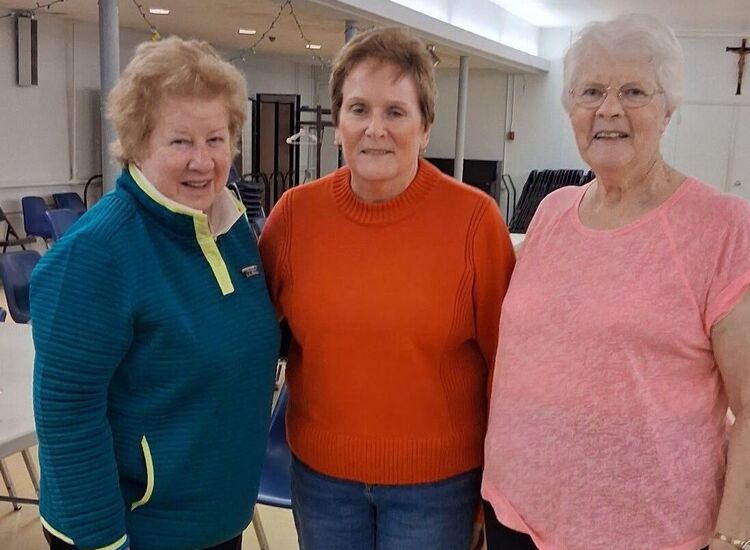Dr. Brendan Kelly's book has now been published in the U.S.
By Dr. Brendan Kelly
As soon as the new coronavirus, Covid-19, began to spread outside China, it was clear that the world faced two problems.
The first is the illness caused by the virus itself. Most people survive the infection, but a significant minority do not. The sick, the elderly and the poor are at particular risk.
This leads us to the second problem, which is the anxiety and panic that the virus triggers in the minds of virtually everyone who hears about it. This anxiety prompted me to write my new book, “Coping With Coronavirus: How to Stay Calm and Protect Your Mental Health – A Psychological Toolkit."
As a psychiatrist, I am accustomed to treating people with anxiety disorders such as social phobia and panic attacks.
Much of the psychological treatment for these conditions teaches people to see that their anxiety has no basis. If a person has panic attacks in the grocery store, a therapist can help them to recognize their symptoms, address their anxiety, and start – gingerly - to enter a grocery store. They learn that there is nothing to fear.
The problem now is that there is something to fear: Covid-19. There is nothing good about this virus, or what it has done to our world. It has infected close to five million people. More than 300,000 have died. Countless families are bereaved. Most of the world’s population is in a state of heightened anxiety, sleeplessness and lockdown. Many have lost their jobs.
Perhaps the most concerning part of all of this is the uncertainty. When will this end? Are our governments doing enough? Are we? Will our world ever be the same?
To deal with this anxiety, we need to remember that just as Covid-19 has its particular strengths and abilities, humans are very resourceful too. Ultimately, we can control this outbreak, albeit at very high cost. We can also control our anxiety and learn to live with uncertainty, once we set our minds to the task. Covid-19 demands no less.
Paradoxically, the first step is to allow ourselves to be anxious. This is a uniquely tough time and it is appropriate that we are sad about all we have lost.
It is helpful to stay informed about the pandemic, but not to obsess. We should limit our media consumption to 15 minutes twice per day, focused on reliable sources such as the Centers for Disease Control and Prevention (www.cdc.gov). Focusing on what we can control in this situation is the key. This is especially important when explaining Covid-19 to children.
Small actions (like hand washing) matter greatly, both in our own lives and in the bigger picture. These small steps reassure children that we can all do something to help.
As I wrote my book in the early weeks of the pandemic, it was clear to me that part of the solution to our anxiety lay in thinking about the needs of others.
We gain perspective when we see ourselves as part of a larger whole. Covid-19 has demonstrated just how inter-connected we are.
We can use these connections to strengthen each other and consolidate our response to this outbreak. The suffering of other people is continuous with our suffering, just as their happiness is continuous with ours.
Managing emotions is critical. While quarantine, self-isolation, limited social interaction and physical distancing are effective public health measures, they create unusual social and emotional situations with which most people are unfamiliar.
Emotions often disguise themselves as behaviors or facts and can therefore mislead us. We can have several conflicting emotions at the same time or in quick succession. It is helpful to practice the skill of sitting with uncomfortable emotions, rather than responding to them immediately. Meditation helps.
Finally, in the midst of a pandemic, we should find time each day to do other things. While physical distancing, self-isolation and general anxiety can place limits on our activities, there is still plenty to do, both inside and outside: eat well, pay attention to sleep, go outside when possible and do some exercise.
Also, find an activity that absorbs you and clears all your worries from your mind for a period of time: running, meditating, yoga, knitting or anything that clears and refreshes your mind.
Anxiety and panic can seem infinite, but nothing is truly infinite. While we cannot and should not ignore our emotions, we need to respond proportionately to them and leave room for logic, pragmatism and action.
We are always bigger than our anxiety, even in the time of Covid-19.
Brendan Kelly is Professor of Psychiatry at Trinity College Dublin and author of “Coping With Coronavirus: How to Stay Calm and Protect Your Mental Health – A Psychological Toolkit” (Melville House, Brooklyn, NY). Both the author and the publisher are donating proceeds from this book to charity. Find a copy at https://www.mhpbooks.com/books/coping-with-coronavirus/









